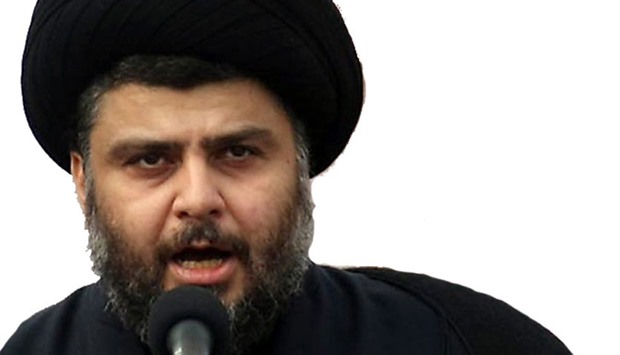Hundreds of supporters of Iraqi cleric Moqtada al-Sadr demonstrated in Baghdad Wednesday to demand electoral reform ahead of a planned provincial vote in September.
The protesters, who have been demanding deep political reform since last year, argued that the current rules were tailored for Iraq's leading parties, which they accuse of corruption and nepotism.
"We came here to demand that the electoral law be amended and the members of the electoral commission replaced," said Naim Toma, a 43-year-old taxi driver who lives in Sadr City.
Many of the protesters were from the same northern Baghdad neighbourhood, which was named after the influential cleric's father and from which he draws much of his support.
"One of our main demands is for the members of the electoral commission to be changed because they are currently all affiliated to a big political party," said another of the protesters, Ikhlas al-Obeidi.
"Ultimately, we want to change the political leadership that has dragged this country into crisis and replace them with people who work to serve the Iraqi nation and people," said the young doctor.
The protesters, most of them waving Iraqi flags, all argued that the Independent High Electoral Commission was anything but independent.
Earlier this year, Prime Minister Haider al-Abadi's cabinet approved a September date for provincial elections. The commission's term expires that month.
"We must... pick independent members who are competent and not loyal to parties or blocs because they will always be under intense political pressure," said Hana Edwar, a veteran activist.
The other key demand pushed by the few hundred protesters who gathered in front of the heavily fortified Green Zone in central Baghdad was a reform of the electoral law.
The current seat allocation system for parliament was adopted before 2014 parliamentary polls, after small parties made significant gains in provincial elections a year earlier.
Sadr supporters held a string of massive rallies last year, which on two occasions saw protesters break into the Green Zone, which is home to the country's key institutions as well as major Western embassies.
The demonstrations were halted when tens of thousands of members of the security forces launched Iraq's largest military operation in years four months ago to retake the city of Mosul from the Islamic State group.
The announcement last month that elections would take place in September however has brought the political agenda back to the fore and Sadr supporters looked set to resume their campaign of streets protests.
"Next week we will hold a huge march to reaffirm these demands," Ibrahim al-Jaberi, a Baghdad official in Sadr's movement, said.

Moqtada al-Sadr
